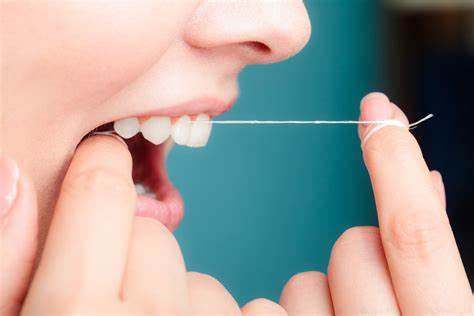What causes tooth sensitivity and what should you do
A hot summer always needs a refreshing favorite: ice cream! Ice cream is a particularly pleasant dessert until a big ice cream causes toothache; If you have experienced this uncomfortable, sharp feeling when eating something particularly hot or cold, you are not alone. Tooth sensitivity is one of the most common dental problems in the United States, as nearly 50% suffer from dental disease. Our team at Beavers Dental knows that this is both painful and annoying, so we are here to help. Read on to find out how your teeth initially became sensitive and what you can do to help relieve the pain.
What is tooth sensitivity?
Tooth sensitivity is a dental condition in which teeth are exposed to certain substances and temperatures that cause discomfort or pain. A common behavior that causes this discomfort is to drink real hot or cold drinks. In some cases, even acidic foods or cold air can cause this discomfort. In general, the result of pain is sharp and sudden, but short-lived.
What causes tooth sensitivity?
Your teeth are made up of three main parts. The hard layer of the outermost layer is called enamel and is responsible for protecting the inside of the teeth. Just below the enamel is your dentin, a soft tissue that contains thousands of microtubules and channels leading to the pulp. The pulp is the innermost part of the tooth and it contains thousands of nerves and blood vessels.
When your enamel wears out or your gums begin to shrink, exposing your dentin, your teeth will be sensitive. When your dentin is exposed to certain elements, the microtubules in the dentin allow the hot, cold or acidic substances you ingest to reach the highly sensitive nerves in the pulp, causing sharp pain or discomfort.
So how is your enamel worn? Here are a few factors that can cause this problem:
What can I do to help my teeth sensitivity?
Fortunately, the symptoms of tooth sensitivity can be alleviated by several different methods. Some general recommendations are:
If these general methods don't seem to work, try the following dental procedures:
What is tooth sensitivity?
Tooth sensitivity is a dental condition in which teeth are exposed to certain substances and temperatures that cause discomfort or pain. A common behavior that causes this discomfort is to drink real hot or cold drinks. In some cases, even acidic foods or cold air can cause this discomfort. In general, the result of pain is sharp and sudden, but short-lived.
What causes tooth sensitivity?
Your teeth are made up of three main parts. The hard layer of the outermost layer is called enamel and is responsible for protecting the inside of the teeth. Just below the enamel is your dentin, a soft tissue that contains thousands of microtubules and channels leading to the pulp. The pulp is the innermost part of the tooth and it contains thousands of nerves and blood vessels.
When your enamel wears out or your gums begin to shrink, exposing your dentin, your teeth will be sensitive. When your dentin is exposed to certain elements, the microtubules in the dentin allow the hot, cold or acidic substances you ingest to reach the highly sensitive nerves in the pulp, causing sharp pain or discomfort.
So how is your enamel worn? Here are a few factors that can cause this problem:
- Brushing your teeth is too hard
- Eat too much acidic food
- Grinding or biting
- Long-term use of mouthwash
- Plaque formation
- Excessive bleaching or tooth whitening
What can I do to help my teeth sensitivity?
Fortunately, the symptoms of tooth sensitivity can be alleviated by several different methods. Some general recommendations are:
- Use desensitized toothpaste. There are several brands of toothpaste in the store designed to help sensitive teeth. Try using a toothpaste containing potassium nitrate, which helps block microtubules in the dentin, or fluoride, which can strengthen your enamel. Ask your dentist for advice or go to your local pharmacy.
- Avoid highly acidic foods and beverages. Highly acidic foods can erode your enamel, especially when acid stays on your teeth for a long time. The damage to enamel is irreversible, so please do your best to limit acidic foods and beverages.
- Avoid grinding teeth. Slowly grinding your teeth will make your enamel worse. Use a guard plate to prevent further damage if necessary.
- Use a fluoride mouthwash. As mentioned earlier, fluoride can enhance enamel, so fluoride mouthwash helps to repair enamel.
If these general methods don't seem to work, try the following dental procedures:
- Fluoride gel or varnish. Your dentist can apply a fluoride gel or varnish directly to sensitive teeth as a barrier. This can enhance your enamel and relieve pain.
- Gum, crown or inlay. These methods can repair damaged or defective parts that cause tooth sensitivity.
- Surgical gum transplantation. If your gums are retracted, the transplanted gums can repair the retracted gums and protect the roots and dentin of the teeth.
- Root canal. If nothing else works, the root canal can help alleviate the symptoms of tooth sensitivity.
YOU MAY ALSO LIKE





